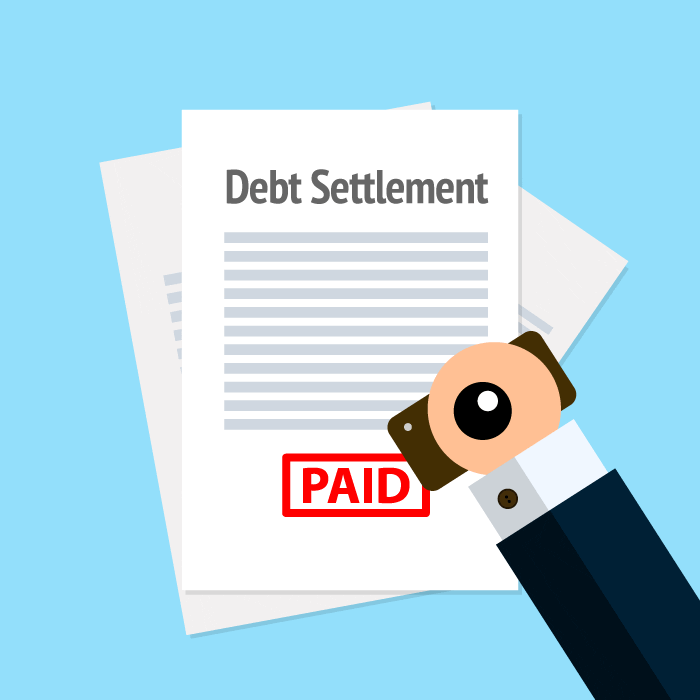Should I Settle a Debt?
A question I am frequently asked is: should I settle a debt? Unfortunately, the answer is a little more involved than a simple yes or no answer and depends on several factors.
Settling a debt with a creditor is usually a good thing:
- It resolves the debt that you owe
- The creditor stops its collection activity
- The immediate threat of a lawsuit or garnishment is removed.
But is that all? Here are some issues I discuss with clients when considering settling a debt.
Is this the Only Debt You Owe?
Generally, if you only have, say, one credit card debt that is causing you headaches, then it might be worth your effort to try to settle it. The only real issue to consider here is the amount of the debt. If the debt is for a relatively large balance, then settling it may not be feasible as the creditor may want a larger lump sum or monthly payment to settle it.
The amount you settle for really depends on your budget and what you are comfortable paying to settle it. Rarely do I recommend taking out a new loan to pay off an old loan. But if a lawsuit or garnishment is imminent it might be something to think about.
Do You Recommend a Retirement Loan to Payoff a Debt?
Again, generally, I would not recommend a retirement loan to pay off existing debt. But, if you only have one debt for a relatively small amount of money, then perhaps a retirement loan might help. Most people can access retirement funds fairly quickly, with relatively low interest, and a good repayment term (usually up to five years). A word of caution is that if a retirement loan is not paid back you could open up yourself to being taxed on the amount you borrowed.
What if I Have Multiple Debts?
If you owe multiple creditors, then settling with one may not make sense. Settling with one creditor may resolve the debt with that creditor but then you'll have another creditor knocking on the door next month, and again with another creditor soon after that. This generally does not help one's cash flow by paying settlements every month. If you have multiple debts then it may be beneficial to speak with a bankruptcy lawyer about an interest-free, debt consolidation, Chapter 13 bankruptcy case.
Is a Lump Sum Settlement Better than Making Monthly Payments?
My experience has shown that if you want to settle for the best deal, offering a lump sum to that creditor will save you the most money. For example, if you owe $5,000 on a credit card and can settle for $3,000, you “saved” $2,000. But if you want to make monthly payments, most creditors will not discount the debt (or only offer you a slight discount) but allow you 2-3 years to pay off the full balance.
The risk you run with making monthly payments is that you might miss a payment because of some other urgent bill that needs to be paid. The creditor could then begin a lawsuit to start garnishing your check for the remaining balance, plus any accrued interest. Making a settlement to pay monthly payments really only benefits the creditor as the creditor has nothing to lose. There are exceptions to the cancellation of debt income. Let your tax preparer know if you have received a 1099-C.
What is a 1099-C?
According to the IRS:
“In general, if you have cancellation of debt income because your debt is canceled,forgiven, or discharged [in bankruptcy] for less than the amount you must pay,the amount of the canceled debt is taxable and you must report the canceled debton your tax return for the year the cancellation occurs.”In the example above, if you settle a $5,000 debt for $3,000, then you are taxed on the amount forgiven, or $2,000. The creditor is required to report any amount to the IRS over $600 in debt that is forgiven and send you a Form 1099-C. When the real estate market was in decline several years ago this was a big deal. In one case, a client signed a deed in lieu of foreclosure and the mortgage company sent a 1099-C for $50,000 of debt that was forgiven. The client had to report this extra “income” on his tax return.
This might not be a big issue when settling for much smaller debt, but it is something to be aware of.
Also, keep in mind that a “charge off” or “charge-off debt” does not mean the debt is forgiven.
If you have questions about settling a debt, speak with an experienced bankruptcy lawyer. We do more than just file bankruptcy cases. We have insight into all aspects of debt and debt collection.


